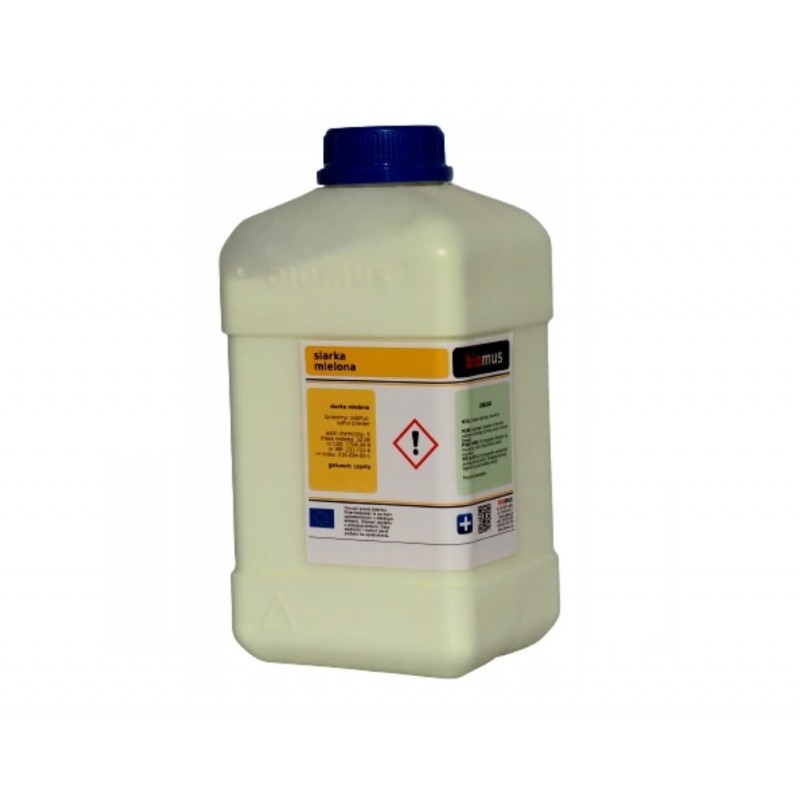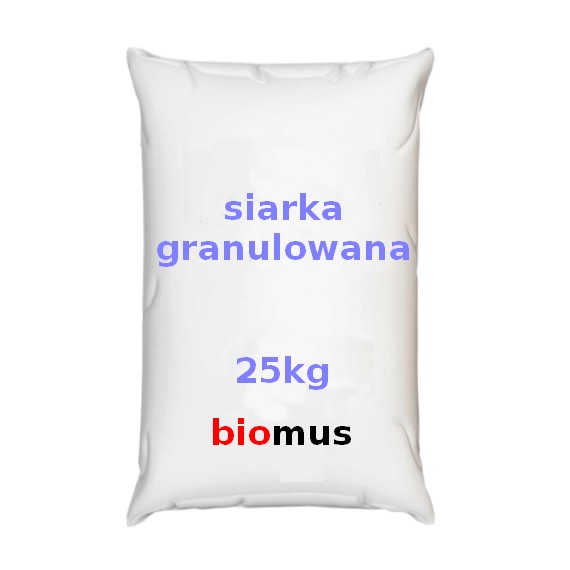Sulfur ground. Siarka mielona 1kg
(zł18.90 /kg)
Lowest price in the last 30 days
Sulfur ground
Species: clean
Specification
Name: Sulfur ground
Synonyms: Sulfur
Genre: Clean
Cleanliness: Clean min. 99.9%
Chemical formula: S
The use of sulfur
Sulfur is one of the most frequently used raw materials in the chemical industry. It and its compounds are used for the production of carbon disulphide and sulfuric acid (VI). It is also used to vulcanize rubber (giving flexibility) and in the production of matches, gunpowder and fireworks. Sulfur is essential for living organisms as a component of proteins.
It is used in the production of dyes, in medicine and in the specialist cement company.
The use of sulfur in gardening and fruit-growing
• it plays an important role in the development of various plants. For crops, it is not only an ingredient that takes part in proper nutrition, but also plays an important role in their protection. As a protection measure, it is even more important than as a nutrient shaping the size and quality of the crop.
• used before flowering, it inhibits the development of apple apple stalk and spider mites. It plays an important role in protecting apple trees, especially against the most dangerous disease, i.e. scab of apple trees.
• just like nitrogen, magnesium, phosphorus, potassium and calcium, sulfur belongs to the macronutrients of plants. With its deficiency, the plants can not function properly, and the symptoms of its deficit resemble the symptoms of a lack of nitrogen. Sulfur supports the absorption of nitrogen from the soil.
Acidification with sulfur
• for souring, sowing of powdered or granulated sulfur is used. It works slowly and requires some time to be fully effective. After small doses sown in autumn, plants can be grown in spring, however, if a maximum dose (2.5-3.5 kg / 10m2) is to be used, a minimum of one year should be allowed. Sulfur can be used after planting, but a single dose should not exceed 50-100 g / 10m2 in this case.
• in order to maintain a low pH level in the cultivation of acidophilic plants, the use of compost, manure as well as basic mineral fertilizers (eg calcium saltpetre, magnesium saltpetre, nitro-chalk) should be avoided - they cause an increase in soil pH.
















